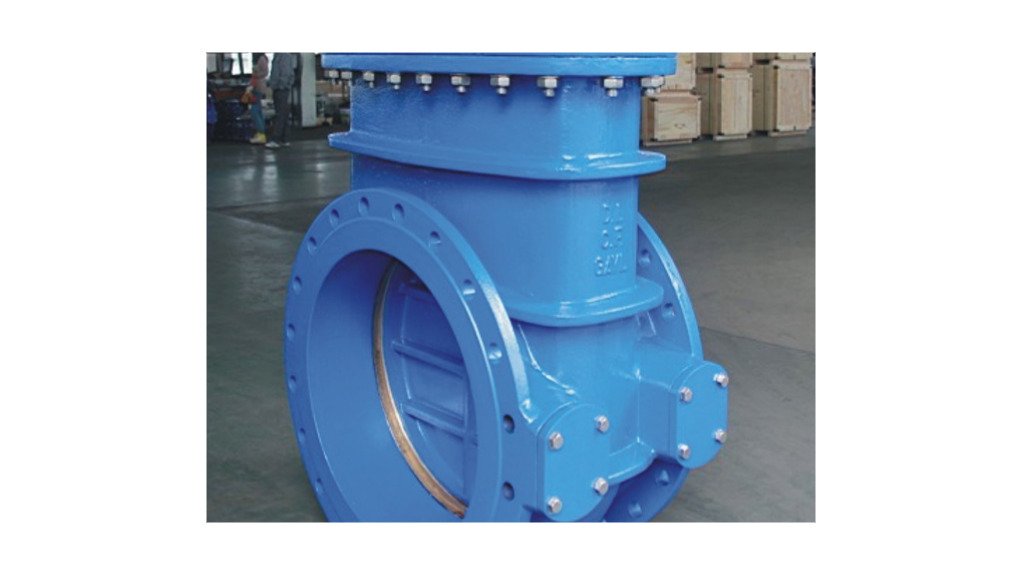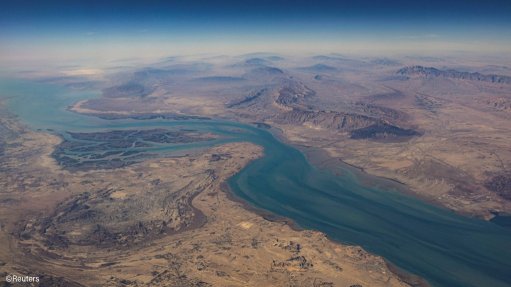Foundries resilient despite challenges – organisation


VALVE MANUFACTURING PROSPECTS Assessing economic challenges and market opportunities could be key to unlocking the potential in the valve manufacturing sector
Key industry support initiative the National Foundry Technology Network (NFTN) asserts that the health of the foundry sector has remained resilient despite significant challenges in recent years following the Covid-19 pandemic.
An industry support programme hosted by the Council for Scientific and Industrial Research (CSIR) and funded by the Department of Trade, Industry, and Competition, the NFTN’s mandate is to manage, coordinate and facilitate development and transformation in the foundry sector through focused interventions designed to enable foundries to become more competitive.
“The NFTN programme, therefore, is significantly contributing to . . . industry growth, in line with the value chain opportunities selected by the various national master plans, and in prioritising innovation research and development, which is highlighted as a key focus in the National Development Plan,” explains metallurgical engineer and NFTN senior project manager Isidore Kilongozi.
Although not a large contributor to the GDP, the sector is an essential precursor and the backbone of many other manufacturing and industrial operations, the NFTN argues.
It adds that this is where the foundry sector derives its strategic value and is, thus, essential for re-industrialisation goals – especially for automotive, manufacturing, infrastructure, construction, mining, railways, agriculture and capital equipment.
In outlining the importance of valve manufacturing moving forward, Kilongozi highlights that such manufacturing is in high demand for power generation, the chemicals and petrochemicals industries, as well as the water and mining sectors.
“There are massive ongoing capital expenditure projects in the implementation phase, such as at the Medupi, Kusile and Ingula power stations; and water infrastructure upgrades, replacements and project developments for more than 800 municipalities across the country, just to name some major areas of valves applications, which are raising the revenue share of the valves market every year.”
Kilongozi adds that the manufacturing of valves will remain in the spotlight for the foundry sector moving forward.
Addressing Key Challenges
The pertinent challenges of the foundry sector include the identification of market opportunities and understanding customer requirements, as well as the capacity to invest in newer technologies and equipment.
Kilongozi notes that most local foundries are relatively small and use outdated equipment and processes, leading to lower-quality products and higher production costs, consequently making it difficult for them to compete with overseas suppliers.
In addressing the micro- and macroeconomic challenges of price volatility, demand fluctuation and skills development, the NFTN asserts that it is unlikely there will ever be a holistic approach to controlling these parameters.
Kilongozi believes that establishing a price preference system to support local suppliers could assist the local sector and create an environment for foundries to access quality scrap and other related input material.
“NFTN projects aim to support the localisation of several value-added foundry products to curb the surge of imports in original-equipment manufacturer supplier development programmes as a means. . . to capitalise on market opportunities from private and public expenditure programmes, which could lead to addressing and controlling price and demand fluctuations.”
Kilongozi adds that the programme assists metallurgical engineering graduates and unskilled workers already employed in the sector to meet key foundry technical standards, and associated skills such as moulding, melting and patternmaking.
To mitigate skills shortages, the NFTN is working in collaboration with the South African Institute of Foundrymen (SAIF) and other industry stakeholders to train and develop the youth in moulding, melting and patternmaking.
Kilongozi highlights that the advantages of producing valves locally is the visibility of sustainable demand, and enhancing collaboration among various industry players that can, in turn, lead to a more unified and organised industry.
He adds that local manufacturers need to understand that many types of valves with complex functionalities are used in specific systems ranging from carbon steel, stainless steel, alloy, ductile iron and brass to bronze.
Further, the NFTN asserts that inconsistent interpretations of environmental legislation by municipalities have sometimes impacted on foundries’ sustainability, posing the threat of business closure.
However, it has been assisting foundries in assessing the current environmental conditions with respect to carbon and gas emissions inside the foundries by conducting chemical risk assessments, and illumination, ventilation and air-monitoring surveys.
The NFTN has received a good reception from small and medium-sized foundries, in addition to successes because of its involvement at firm and industry level, including representing South Africa together with SAIF in the World Foundry Organisation and its participating in global foundry conferences.
Kilongozi says the increasing demand for high-quality casting products puts pressure on local foundries to innovate production processes and adopt advanced technologies to move from traditional manufacturing to automated processes involving robotics and artificial intelligence.
The NFTN’s overarching aim is to develop industry and global best practices across the country to ensure the long-term sustainability of the foundry sector.
Article Enquiry
Email Article
Save Article
Feedback
To advertise email advertising@creamermedia.co.za or click here
Press Office
Announcements
What's On
Subscribe to improve your user experience...
Option 1 (equivalent of R125 a month):
Receive a weekly copy of Creamer Media's Engineering News & Mining Weekly magazine
(print copy for those in South Africa and e-magazine for those outside of South Africa)
Receive daily email newsletters
Access to full search results
Access archive of magazine back copies
Access to Projects in Progress
Access to ONE Research Report of your choice in PDF format
Option 2 (equivalent of R375 a month):
All benefits from Option 1
PLUS
Access to Creamer Media's Research Channel Africa for ALL Research Reports, in PDF format, on various industrial and mining sectors
including Electricity; Water; Energy Transition; Hydrogen; Roads, Rail and Ports; Coal; Gold; Platinum; Battery Metals; etc.
Already a subscriber?
Forgotten your password?
Receive weekly copy of Creamer Media's Engineering News & Mining Weekly magazine (print copy for those in South Africa and e-magazine for those outside of South Africa)
➕
Recieve daily email newsletters
➕
Access to full search results
➕
Access archive of magazine back copies
➕
Access to Projects in Progress
➕
Access to ONE Research Report of your choice in PDF format
RESEARCH CHANNEL AFRICA
R4500 (equivalent of R375 a month)
SUBSCRIBEAll benefits from Option 1
➕
Access to Creamer Media's Research Channel Africa for ALL Research Reports on various industrial and mining sectors, in PDF format, including on:
Electricity
➕
Water
➕
Energy Transition
➕
Hydrogen
➕
Roads, Rail and Ports
➕
Coal
➕
Gold
➕
Platinum
➕
Battery Metals
➕
etc.
Receive all benefits from Option 1 or Option 2 delivered to numerous people at your company
➕
Multiple User names and Passwords for simultaneous log-ins
➕
Intranet integration access to all in your organisation


















